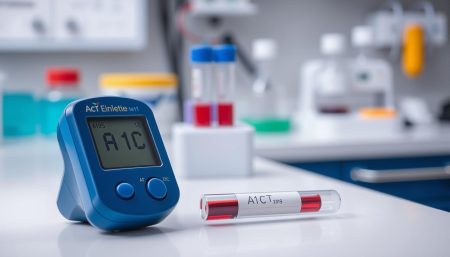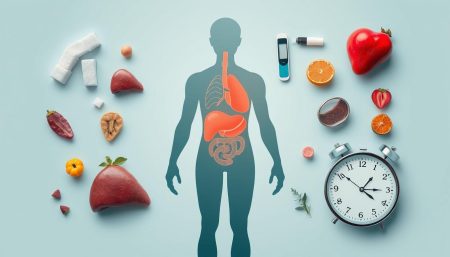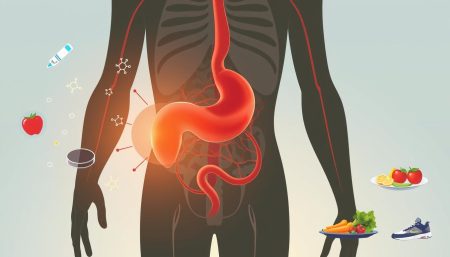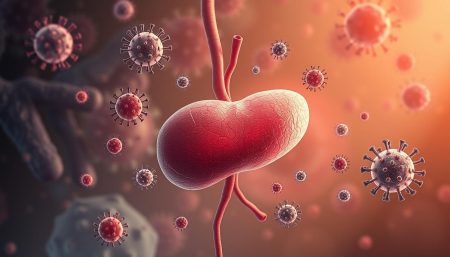Type 1 mellitus diabetes is a serious medical condition that needs careful diabetes management. It’s an autoimmune disease that requires a deep understanding of its causes and effective management. Knowing how to handle it can greatly improve your life.
Managing type 1 diabetes involves constant medical care, lifestyle changes, and learning about the disease. People with this condition face many challenges. They must balance their blood sugar levels using science and determination.
Starting the journey of diabetes management means facing challenges head-on. With the right approach, you can overcome them and regain your health. Let’s dive into the causes, symptoms, and management strategies that can help you take control of your health.
Understanding Type 1 Mellitus Diabetes
Type 1 mellitus diabetes, also known as autoimmune diabetes, is a long-term condition. It happens when the body’s immune system attacks the insulin-making cells in the pancreas. This attack stops the body from making insulin, a key hormone for energy.
People with this condition need insulin their whole lives to keep their blood sugar levels right. This is because they can’t make enough insulin on their own.
Insulin is very important for those with type 1 diabetes. Without it, sugar builds up in the blood. This can cause serious health problems if not treated.
It’s important to understand what causes this condition and how to manage it. For more information on related issues like hair loss, check out how high blood sugar and insulin resistance can lead to thinning hair.
Spotting the signs early and starting treatment quickly can greatly improve life. Ongoing research and new treatments are helping manage autoimmune diabetes better.
In summary, knowing Type 1 diabetes is key. It shows how important the immune system is for insulin production. Keeping blood sugar in check, making lifestyle changes, and sticking to insulin therapy are vital for managing the condition well.
Key Differences Between Type 1 and Type 2 Diabetes
It’s important to know the main differences between type 1 vs type 2 diabetes. These types of diabetes are often mixed up. But they have big differences in how they start, when they start, and how they are treated.
Type 1 diabetes usually hits kids and young adults. It’s when the body attacks the cells that make insulin in the pancreas. Type 2 diabetes, on the other hand, starts in adults over 45. It’s linked to being overweight, not moving much, and having diabetes in the family. Unlike type 1, type 2 diabetes means the body makes insulin but can’t use it well.
- Age of Onset: Type 1 mostly affects young people; Type 2 hits adults.
- Body’s Insulin Production: Type 1 means little to no insulin; type 2 means insulin is made but not used right.
- Genetic Predisposition: Both types have a genetic link, but type 2 is more tied to family history.
- Management: Type 1 needs insulin forever; type 2 can be managed with diet, exercise, and meds.
Knowing these differences helps us understand why each type needs its own diabetes treatment options. This is key for teaching patients and improving care plans.
The Autoimmune Nature of Type 1 Diabetes
Type 1 diabetes is caused by the body’s immune system attacking insulin-making cells in the pancreas. This attack destroys these cells. Knowing about genetic predisposition and environmental triggers helps us understand how autoimmune diabetes starts.
What Triggers the Autoimmune Response
Many things can start the autoimmune attack in Type 1 diabetes. Viruses like enterovirus and mumps are often to blame. When the immune system fights these viruses, it sometimes attacks the insulin-making cells too.
Understanding Genetic and Environmental Risk Factors
Genes and the environment both play big roles in getting Type 1 diabetes. Genetic predisposition doesn’t mean you’ll definitely get the disease. But, it makes you more likely if you’re exposed to the right environmental factors. Things like early diet, vitamin D levels, and chemicals can all play a part.
| Factor Type | Examples | Impact |
|---|---|---|
| Genetic | Family history, HLA genes | Increases susceptibility, varies widely among individuals |
| Environmental | Viruses, toxins, diet | Can trigger or accelerate immune response |
| Vitamin Effects | Vitamin D deficiency | Potential association with increased diabetes risk |
Identifying the Symptoms of Type 1 Diabetes
It’s important to know the early signs of type 1 diabetes to act quickly. This part talks about the usual symptoms and the special signs in young people. It also covers how doctors diagnose this condition.
Early Warning Signs and Diagnosis
Spotting the first signs of type 1 diabetes can save lives. Look out for signs like drinking a lot of water, needing to pee a lot, losing weight fast, and feeling very tired. These signs can come on quickly and need quick doctor visits to avoid serious problems.
The Onset of Symptoms in Juvenile Diabetes
Juvenile diabetes often hits kids and teens fast. Parents might see their kids getting really tired, losing weight without trying, or always hungry. Catching these signs early is key to managing the disease well.
| Symptom | Common in Adults | Common in Children (Juvenile Diabetes) |
|---|---|---|
| Excessive Thirst | Yes | Yes |
| Frequent Urination | Yes | Yes |
| Sudden Weight Loss | Yes | Often |
| Severe Fatigue | Yes | Yes |
| Blurry Vision | Yes | Sometimes |
Navigating Type 1 Diabetes Management
Managing diabetes well means having a mix of daily habits, medical care, and self-care. Each part is key to staying healthy and feeling good. This includes insulin, diet, and more.
Insulin is the main treatment for type 1 diabetes. It’s important to work with doctors to find the right insulin and amount. This helps keep blood sugar levels just right, avoiding big problems.
What you eat is also very important. Eating foods full of nutrients and watching carbs helps control blood sugar. Exercise is great too. It helps keep weight in check and makes your body use insulin better.
| Aspect | Strategy | Benefits |
|---|---|---|
| Insulin Therapy | Customized dosages | Stable blood sugar levels |
| Dietary Choices | Carb counting, balanced nutrition | Controlled glucose levels |
| Physical Activity | Regular exercise | Reduced insulin resistance |
| Monitoring | Frequent glucose checks | Immediate feedback on health status |
Regular check-ups and monitoring are also key. This helps catch and prevent heart disease early. Heart disease risks are higher with diabetes. Staying on top of health and making smart choices improves life quality for those with type 1 diabetes.
Adding these parts to your daily routine helps manage diabetes well. It also lets people with type 1 diabetes live full and active lives.
Comprehensive Blood Sugar Monitoring Techniques
Managing Type 1 Diabetes well means keeping a close eye on blood sugar monitoring. This part talks about the tools and knowledge needed to keep glucose levels in check. It covers regular glucose testing and knowing the glycemic index.
Regular Glucose Testing and Devices
It’s key to watch glucose levels closely for those with diabetes. There are many devices to help with this, like continuous glucose monitors (CGM). These devices give real-time data on glucose levels all day.
They help track daily changes and patterns over time. This is very helpful for managing diabetes long-term.
- Fingerstick meters
- Continuous glucose monitors (CGM)
- Flash glucose monitors
Each device has its own use. CGMs are great for detailed glucose tracking. They warn of high or low blood sugar, helping avoid emergencies.
Understanding Glycemic Index and its Importance
The glycemic index (GI) is a big help in planning what to eat with diabetes. It shows how carbs affect blood sugar, helping pick foods that keep energy up and blood sugar stable.
| Food Category | Low GI Foods | High GI Foods |
|---|---|---|
| Grains | Barley, Bulgar | White Rice, Cornflakes |
| Fruits | Apples, Oranges | Watermelon, Pineapple |
| Vegetables | Carrots, Kidney Beans | Potatoes, Parsnips |
Knowing and using the glycemic index can help keep blood sugar stable. It’s a key part of daily blood sugar monitoring.
Insulin Therapy as a Cornerstone of Diabetes Treatment
In managing insulin-dependent diabetes, insulin therapy is key. It’s important for patients and healthcare providers to know the different types of insulin. This knowledge helps control blood sugar levels effectively.
Insulin therapy is vital for life and quality of life in those with insulin-dependent diabetes. It involves monitoring and adjusting based on diet, activity, and health factors.
- Rapid-acting insulin starts working in minutes and lasts a few hours. It’s great for mealtime blood sugar spikes.
- Long-acting insulin lasts about a day. It’s essential for steady insulin levels.
- Intermediate-acting insulin manages blood sugar for half a day. It’s good for overnight use.
Effective insulin therapy needs a detailed approach. It involves lifestyle and diet changes. Each person’s insulin response is different, so dosing must be tailored.
| Type of Insulin | Onset | Peak | Duration |
|---|---|---|---|
| Rapid-acting | 15 minutes | 1 hour | 3-4 hours |
| Short-acting | 30 minutes | 2-3 hours | 6-8 hours |
| Intermediate-acting | 1-2 hours | 4-12 hours | 18-24 hours |
| Long-acting | 1 hour | None | 24+ hours |
How insulin is given is also important. Options include syringes, pens, and pumps. These choices help meet individual needs and lifestyles in managing diabetes.
Advanced Diabetes Treatment Options
Type 1 diabetes management is changing fast. New technologies and strategies are leading the way. These include insulin delivery systems and organ transplantation. They promise better control and even cures for this chronic disease.
Latest Technological Advancements in Insulin Delivery
New insulin delivery technologies are making a big difference. Devices like insulin pumps and smart pens give automated doses. They help control blood sugar levels day by day.
These systems provide constant insulin and adjust doses as needed. This reduces the risk of low blood sugar. It also improves how well patients do.
Pancreas Transplantation and Islet Transplantation
In organ transplantation, pancreas and islet cell transplants are options for some. They aim to let the body make insulin again. This could be a cure for diabetes.
Though rare, these transplants offer hope. They can make patients insulin-independent and improve their lives. But, there are big challenges like organ rejection and needing to take drugs to prevent it for life.
Every step forward in these areas gives patients more ways to manage their diabetes. But, there are big hurdles like getting access, the cost, and teaching patients about these options.

Diet and Lifestyle Changes to Manage Type 1 Diabetes
Managing Type 1 Diabetes well means eating right and making lifestyle changes. A balanced diabetes diet and active lifestyle help keep blood sugar levels in check. They also help avoid serious health problems linked to Type 1 Diabetes. Let’s look at how diet and lifestyle can help control the condition.
A key part of a diabetes diet is choosing foods with a low Glycemic Index. These foods digest slowly, which helps blood sugar levels rise more gradually. Foods high in fiber, like whole grains, legumes, fruits, and veggies, are great choices.
- Integrating whole grains like quinoa, barley, and oats
- Including a variety of legumes like lentils, chickpeas, and beans
- Incorporating a wide range of fresh fruits and vegetables
Lifestyle changes are also important. Regular exercise makes your body more sensitive to insulin. This helps manage blood sugar levels better. Stress management is also key, as stress can cause blood sugar to fluctuate.
- Engaging in at least 150 minutes of moderate aerobic activity per week
- Incorporating strength training exercises into routines twice a week
- Adopting mindfulness and relaxation exercises to reduce stress
Family and caregivers play a big role in supporting these lifestyle changes. Working together can make managing Type 1 Diabetes easier.
| Food Category | Recommended Foods | Foods to Limit |
|---|---|---|
| Carbohydrates | Quinoa, Barley, Oats | White Bread, Pastries |
| Proteins | Lean Meats, Fish, Tofu | Fried Meats, High-Fat Cuts |
| Fats | Avocados, Nuts, Olive Oil | Butter, Cream, Lard |
| Vegetables | Broccoli, Spinach, Carrots | Canned Vegetables with Added Salt |
| Fruits | Berries, Apples, Pears | Canned Fruit in Heavy Syrup |
To manage Type 1 Diabetes well, keep learning about the disease. Also, talk often with your healthcare team about your diet and lifestyle changes.
Recognizing and Treating Diabetic Ketoacidosis
Diabetic ketoacidosis (DKA) is a serious diabetes complication that needs quick medical help. Knowing the DKA warning signs and the right emergency diabetes treatment can save lives.
Warning Signs of Diabetic Ketoacidosis
It’s important for patients and caregivers to know the symptoms of diabetic ketoacidosis. These symptoms usually show up in 24 hours and include:
- Excessive thirst and frequent urination
- High blood glucose levels
- Ketones in the urine
- Rapid breathing or shortness of breath
- Fruity-scented breath
- Nausea and vomiting
- Weakness or fatigue
- Confusion or difficulty concentrating
Emergency Treatment Protocols
If you think someone has diabetic ketoacidosis, get emergency diabetes treatment right away. The treatment usually includes:
- Fluid replacement to counteract dehydration
- Electrolyte replacement to maintain heart, muscle, and nerve function
- Insulin therapy to stabilize blood glucose levels
For severe cases, patients might need to stay in an intensive care unit. This is to keep a close eye on their vital signs, blood glucose, and ketone levels. It’s also key to teach patients and their families about the dangers of diabetic ketoacidosis and how to prevent it.
Dealing with Long-term Complications of Type 1 Diabetes
Managing type 1 diabetes is all about watching your health closely. This is to avoid diabetes complications that can pop up later. These include heart problems, nerve damage, and eye issues, all of which need constant care.
To stop these problems, keep your blood sugar in check. Eat well and stay active. But, some people might face these issues despite their best efforts. This shows why regular check-ups and early treatments are so important.
| Complication | Description | Preventative Measures |
|---|---|---|
| Cardiovascular Disease | Increased risk of heart disease and stroke. | Regular cardiovascular assessments, maintaining blood pressure and cholesterol levels. |
| Neuropathy | Damage to the nerve fibers, potentially causing pain and numbness in legs and feet. | Consistent blood sugar monitoring, neurological examinations. |
| Retinopathy | Damage to the retina, leading to blurred vision and blindness. | Annual eye exams, controlling blood glucose and blood pressure. |
Spotting diabetes complications early is key. It helps keep your life good and reduces big health risks. Working with your doctor to create a care plan is essential.
Psychological Aspects of Managing Type 1 Diabetes
Living with Type 1 diabetes is more than just managing blood sugar levels. It deeply affects your emotions and mental health. Understanding the diabetes psychological impact is vital for caring for the whole person. Having support and learning to manage stress are key to feeling better and living well.
Support Systems and Mental Health
People with Type 1 diabetes often face big emotional and mental challenges. This makes having strong mental health support very important. A good support system can include family, friends, support groups, and professional help. Together, they help manage the condition’s complex aspects.

Managing Stress and Emotional Well-being
It’s important to find ways to handle stress well. Activities like mindfulness, meditation, and exercise can help. Also, therapies like Cognitive Behavioral Therapy (CBT) can help build resilience and a positive outlook. This helps in dealing with daily stress from diabetes.
Dealing with Type 1 diabetes goes beyond just physical care. It also includes mental health support. This shows a shift towards a more complete approach to managing diabetes.
Research and Future Directions in Diabetes Care
The world of diabetes research is always changing. It’s working hard to find new ways to treat Type 1 diabetes. Scientists are trying to improve current treatments and even find a cure.
Looking ahead, we see exciting possibilities. For example, beta-cell encapsulation could protect insulin cells from attacks. Also, artificial pancreas systems are being developed. These systems could make managing diabetes easier and more natural.
As we look back on what’s been achieved, we’re also excited for what’s to come. Diabetes research is bringing us closer to better treatments. We’re hopeful for a future where living with Type 1 diabetes is easier and less burdensome.
FAQ
Q: What causes type 1 mellitus diabetes, and how is it managed?
A: Type 1 diabetes happens when the body attacks and destroys insulin-making cells. To manage it, you need ongoing medical care, lifestyle changes, and blood sugar checks. Learning about your condition is also key.
Q: How is type 1 diabetes different from type 2 diabetes?
A: Type 1 diabetes is an autoimmune disease that often starts in kids and young adults. Type 2 diabetes is linked to insulin resistance and lifestyle choices, mainly affecting adults. The treatments for each are quite different.
Q: What triggers the autoimmune response in type 1 diabetes?
A: The exact reason for the autoimmune attack in type 1 diabetes is not fully understood. It’s thought to be a mix of genetics and environmental factors, like viruses.
Q: What are the symptoms of type 1 diabetes, particular in children?
A: Symptoms include being very thirsty, needing to pee a lot, losing weight, feeling tired, and blurry vision. In kids, these signs can appear fast and need quick medical help.
Q: What does managing type 1 diabetes involve?
A: Managing type 1 diabetes means checking your blood sugar often, taking insulin, eating right, staying active, and getting regular healthcare. Everyone’s needs are different, so your plan should be tailored to you.
Q: What are the latest advancements in insulin delivery for people with type 1 diabetes?
A: New tech includes insulin pumps, smart pens, and continuous glucose monitors. These tools help deliver insulin more accurately and easily.
Q: Can pancreas or islet transplantation cure type 1 diabetes?
A: Transplants of the pancreas or islet cells might cure type 1 diabetes. But these procedures are rare and risky. They’re usually considered only in special cases.
Q: What are the warning signs of diabetic ketoacidosis (DKA), and how is it treated?
A: Signs of DKA include nausea, vomiting, stomach pain, fast breathing, and breath smelling like fruit. It’s a serious condition that needs immediate hospital care and treatment with fluids, electrolytes, and insulin.
Q: How can lifestyle changes impact the management of type 1 diabetes?
A: Eating well and exercising regularly are key to managing blood sugar and preventing complications. These habits work alongside insulin therapy to keep you healthy.
Q: What are the long-term complications of type 1 diabetes?
A: Long-term risks include heart disease, nerve damage, eye problems, and kidney issues. Keeping your diabetes in check is vital to avoid these problems.
Q: Why is mental health support important for those living with type 1 diabetes?
A: Managing diabetes can be very stressful. Mental health support is essential to help you deal with the emotional side, avoid burnout, and stay positive.
Q: What is the future of diabetes treatment?
A: Researchers are looking into new treatments like immunotherapy, better insulin delivery systems, and possible cures through transplantation or regenerative medicine.


















